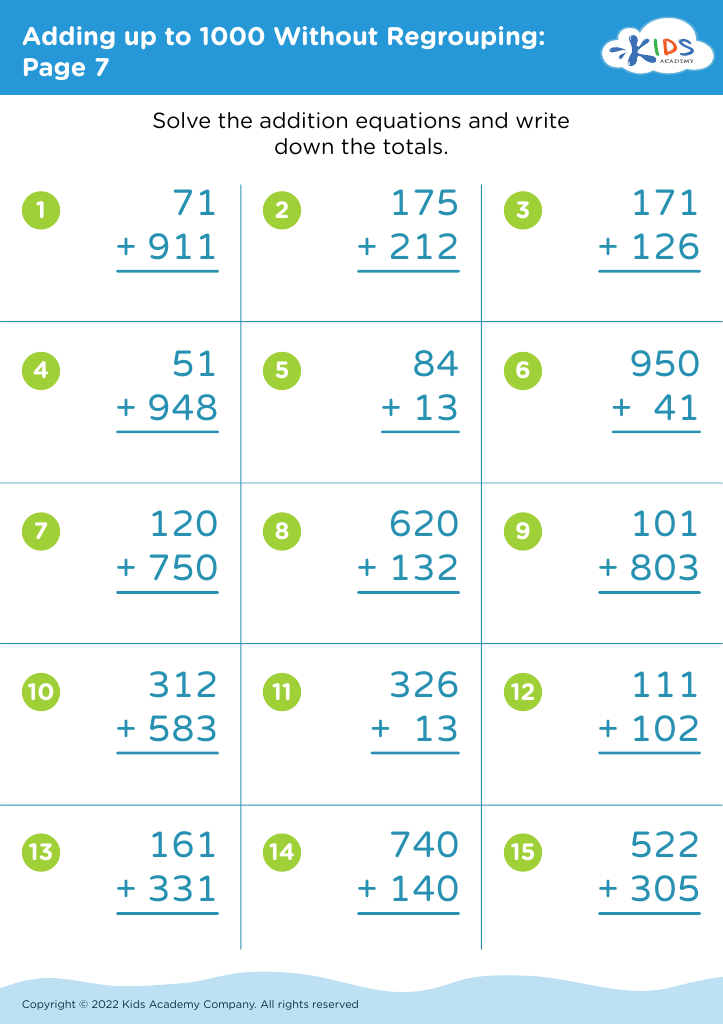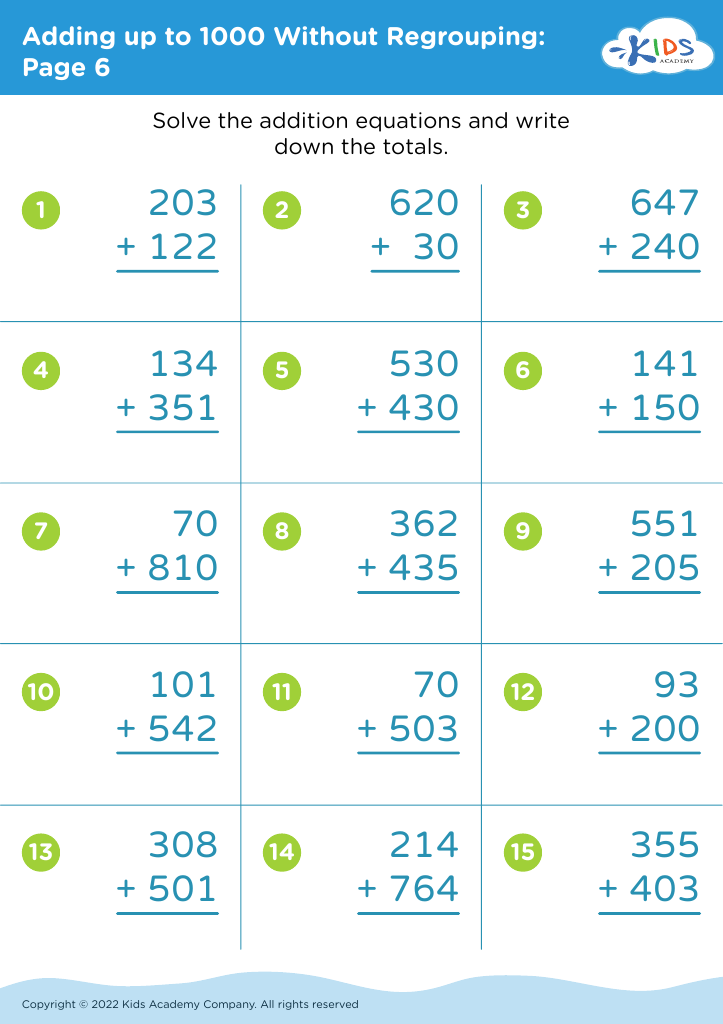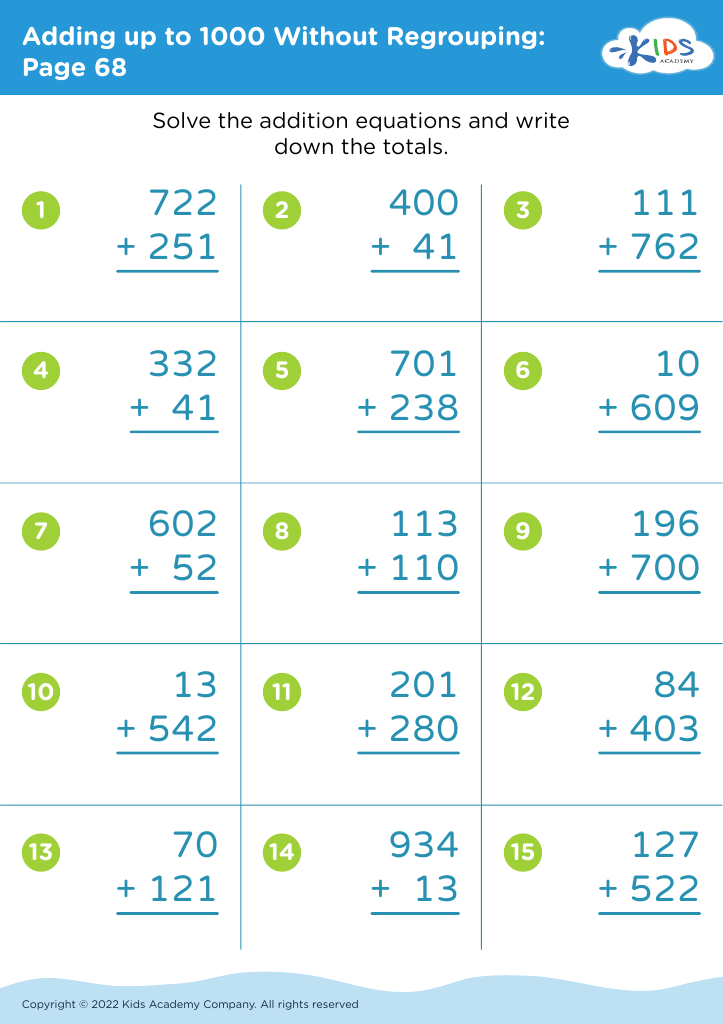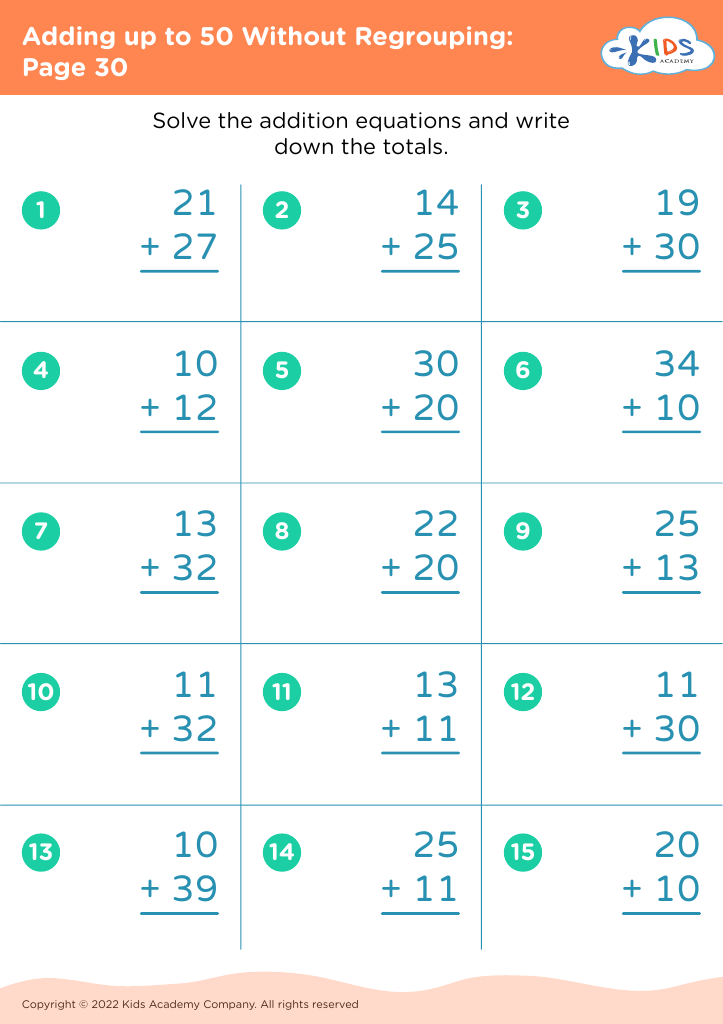Improving counting skills Addition & Subtraction Worksheets for Ages 6-8
12 filtered results
-
From - To
Unlock your child's potential in math with our "Improving Counting Skills: Addition & Subtraction Worksheets for Ages 6-8". Specifically designed to captivate young minds, these engaging worksheets blend fun and learning to improve basic arithmetic skills. Through a series of colorful, thoughtfully structured activities, your child will master addition and subtraction while boosting overall number sense. Perfect for home or classroom use, these exercises support educational standards, fostering confidence and academic success in early math learners. Give your child the foundation they need for a lifetime of numeracy skills. Explore our collection today and watch their math abilities flourish!
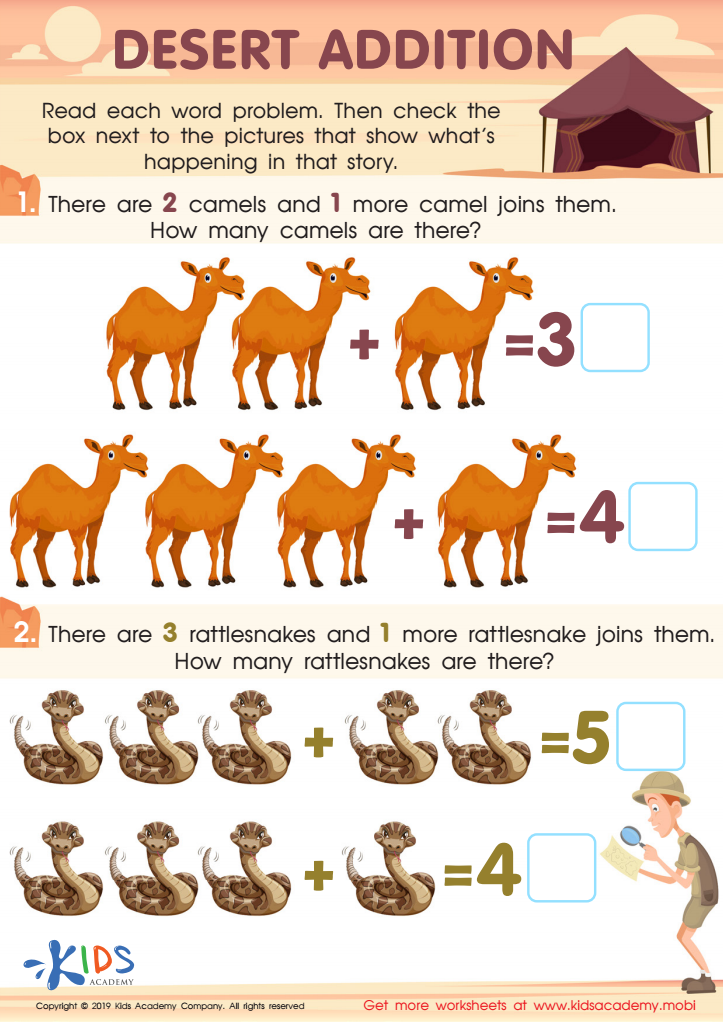

Desert Addition Worksheet
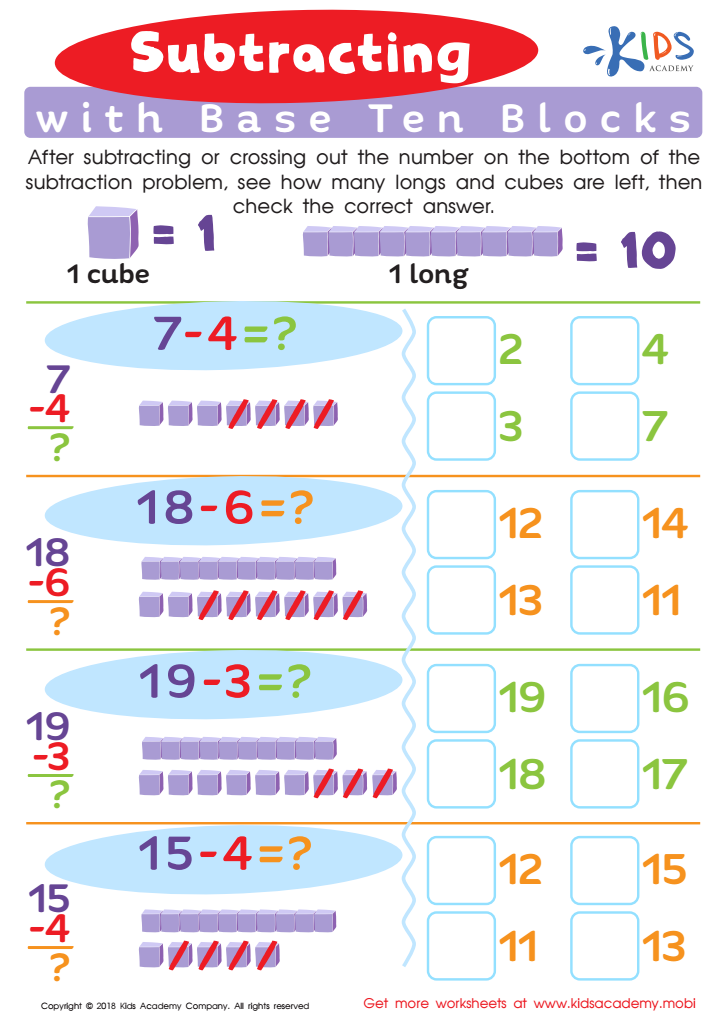

Subtracting With Base 10 Blocks Worksheet
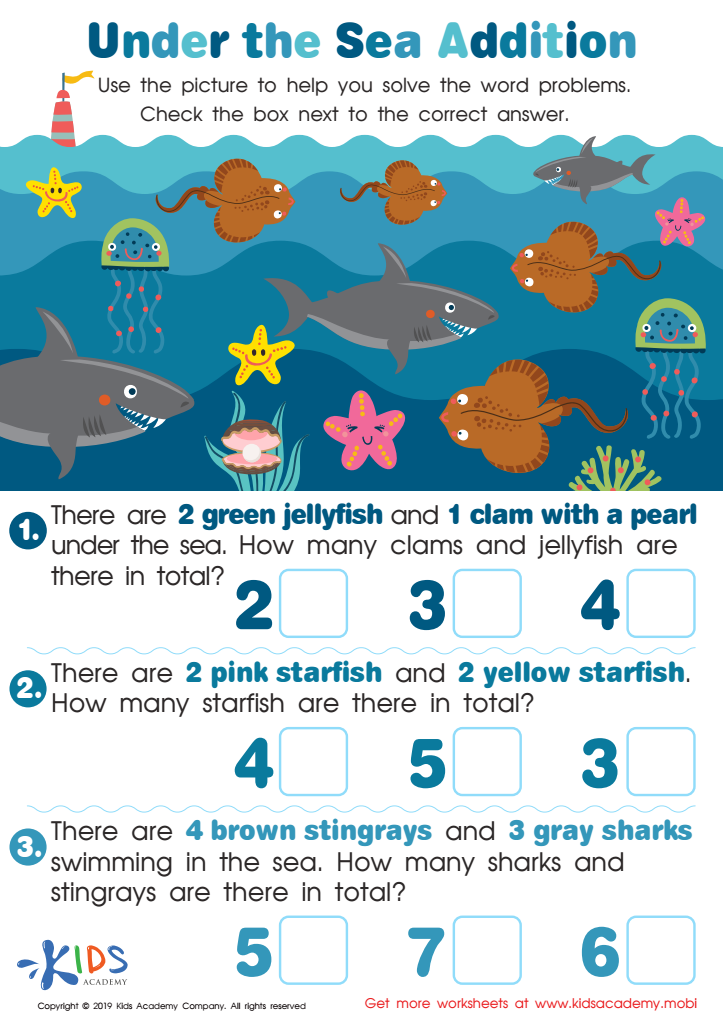

Under the Sea Addition Worksheet
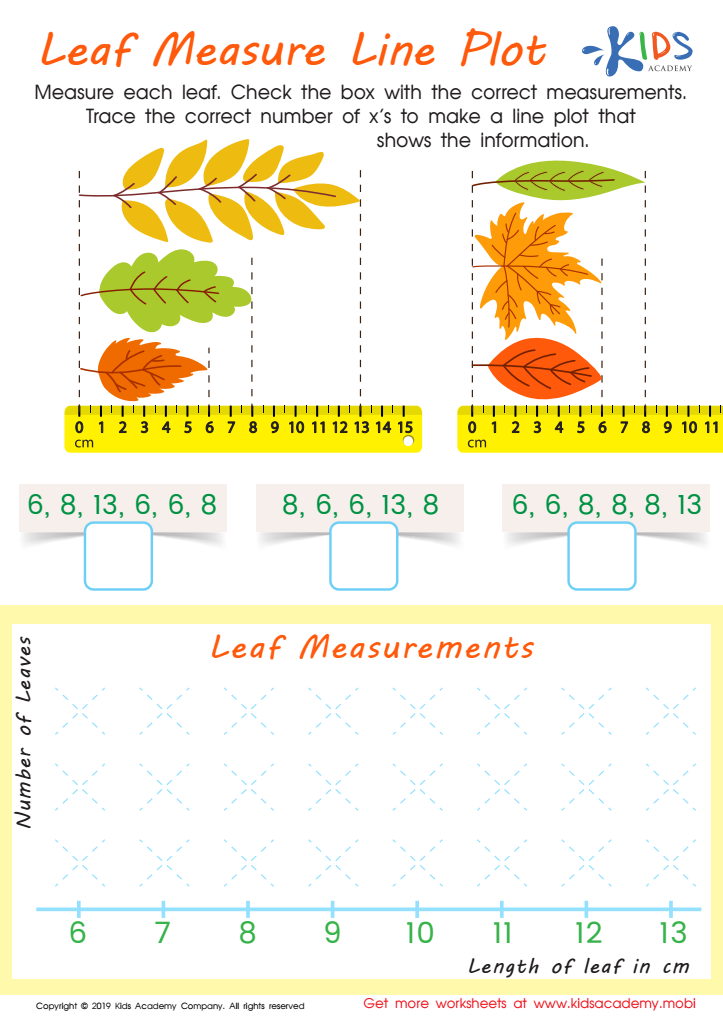

Leaf Measure Line Plot Worksheet
Improving counting skills, addition, and subtraction for children ages 6-8 lays a vital foundation for their educational success and daily life competence. At this developmental stage, children's brains undergo rapid growth that enhances their ability to grasp basic math concepts, critical for advanced mathematical thinking. Proficiency in these basic operations is essential for understanding more complex math topics encountered later, such as multiplication, division, fractions, and algebra.
Additionally, strong counting, addition, and subtraction skills build confidence and reduce math anxiety. With early success, children foster a positive attitude towards math, shaping their learning experiences across all subjects. Mathematics cultivates critical thinking, problem-solving, and logical reasoning abilities, essential skills applicable beyond academics—in tasks such as managing finances, cooking, and following schedules.
For these ages, numeracy skills also nurture perseverance and attention to detail, attributes that contribute to overall intellectual growth. Parents and teachers play crucial roles in creating environments filled with varied and engaging mathematical activities, from games to everyday life scenarios, enriching children's learning experiences. Creating such supportive, math-positive environments encourages continuous learning, ensuring children get the robust start they need for present and future success.


 Assign to My Students
Assign to My Students
